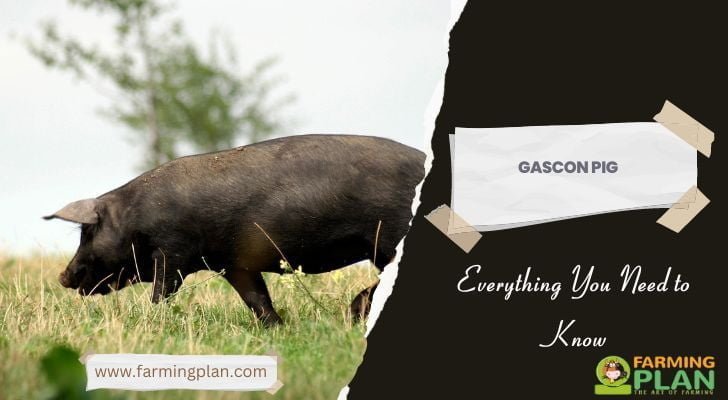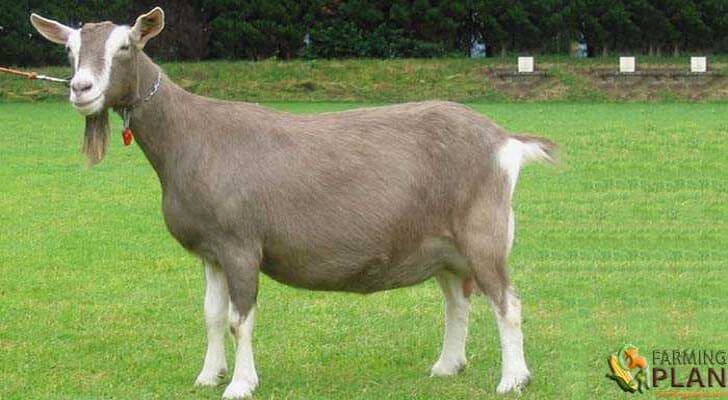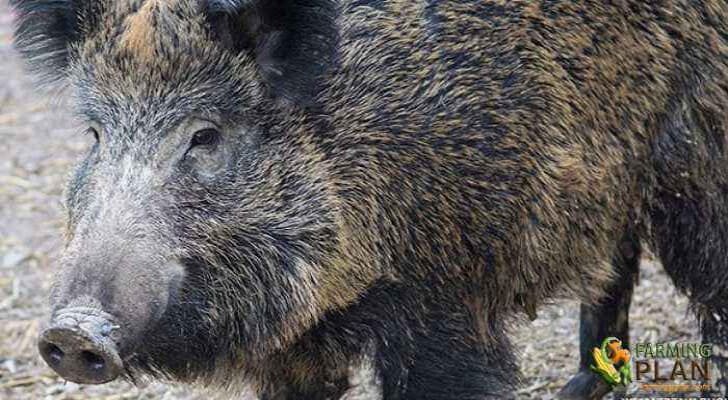There’s something special about the Gascon pig. An iconic breed of domestic pig – steeped in tradition, resilient to its core, and proud — it is one of the oldest surviving breeds in France. Shaped by generations of rural landowners who used them for draft animals, meat production, and even truffle hunting, these hardy pigs have become an integral part of French identity. Today more and more farmers are embracing the power of this incredible hog – mastering the art craft that is responsible breeding and overseeing small-scale farming operations — but not without their own unique challenges along the way. In this blog post, we will explore everything there is to know about breding Gascon pigs – from its history to managing a successful farm business!

History & Origin
The Gascon pig is a unique breed that has earned a reputation as a culinary delicacy. Hailing from the Gascony region of France, these pigs are known for their flavorful, marbled meat that is sought after by chefs around the world. The Gascon pig’s history dates back to Roman times, when the breed was used for agricultural purposes. Over the centuries, the Gascon pig has been carefully bred to develop its distinctive characteristics, including its black coat and exceptional taste. Today, the Gascon pig continues to be an important part of French culture and cuisine, and its popularity is on the rise globally. With its rich history and exquisite taste, the pig is truly a food lover’s delight.
Characteristics
The Gascon pig is a unique breed of swine that can be found in the Gascony region of France. These pigs are known for their distinctive appearance and remarkable characteristics. The Gascon pig is a large and muscular animal with a long snout, floppy ears, and a dark black coat. What sets the pig apart from other pig breeds is its exceptional flavor. The meat produced by these pigs is rich, flavorful, and contains a slightly nutty taste. Additionally, the Gascon pig is known for its incredible hardiness and intelligence. These traits make the pig a popular choice for small farms and homesteads who are looking for a unique, tasty, and sustainable meat source.
Feed
If you’ve decided to take care of a gascon pig, you might be wondering what to feed them. Gascon pigs are known for their high-quality meat, so it’s important to give them the right type of food to ensure they grow healthy and strong. One of the best things you can feed your gascon pig is a mix of grains and vegetables, such as corn, wheat, barley, and carrots. To ensure they’re getting all the nutrients they need, you can also add a supplement that’s designed specifically for pigs. Good nutrition is key to raising happy and healthy gascon pigs, so make sure you’re giving them the right kind of food.
Usage
The Gascon pig is a rare breed that originated in southwestern France. Known for its exceptional meat quality, it has gained popularity among chefs and food enthusiasts alike. This versatile breed can survive in harsh conditions and can thrive in extensive, free-range systems. Its meat is valued for its tenderness, juiciness, and rich flavor. The Gascon unique genetic makeup gives it an unusual marbling pattern, making its meat stand out from other common breeds. Its popularity is slowly increasing outside of France, and it’s not hard to see why. This pig’s delicious meat and hardy nature make it a fantastic addition to any farm, small or large.
Special Feature
Have you ever heard of the Gascon pig? This unique breed is native to the Gascony region in France and is famous for its succulent meat. Not only is the Gascon prized for its culinary qualities, but it is also an important part of the cultural heritage of Gascony. Unlike other breeds, Gascon pigs are raised free-range and are fed a diet of acorns and other natural foods, giving them a distinct flavor. It’s no wonder they are considered a delicacy in the world of gourmet cuisine. If you’re a foodie looking for a unique and flavorful dining experience, the Gascon pig should definitely be on your list.
Breeding Practices for Gascon Pig
Gascon pigs have been around for centuries and have become well-known for their high-quality meat. To maintain the breed’s superior characteristics, farmers need to practice responsible breeding practices. This includes careful selection of parent pigs based on their health, temperament, and physical traits. Farmers should also ensure that the pigs are raised in a clean and healthy environment, with a balanced diet and ample space to roam. By following these breeding practices, farmers can continue to produce gascon pigs that are not only delicious but also strong and healthy. The result is a happier, healthier herd and, ultimately, better meat for consumers to enjoy.
Challenges Involved in Raising
Raising any animal is no easy feat, but the challenges involved in raising Gascon can be particularly daunting. Native to southwestern France, these special pigs are known for their meaty, succulent flavor and their hardy nature. However, they can also be finicky eaters and require plenty of outdoor space to thrive. To produce the best quality meat, Gascon pigs must be raised with care and attention to detail. Farmers who take on this challenging breed must be prepared to put in the time and effort required to ensure their animals are healthy, happy, and well-fed. Despite the challenges involved, many farmers find raising Gascon pigs to be a rewarding experience that yields delicious and unique products.
Housing for Your Gascon Pigs
When it comes to providing a comfortable home for your gascon pigs, there are a few key factors to consider. These delightful creatures need ample space to move around and root in the ground, so a large outdoor area is a must. However, you’ll also need to make sure that they have plenty of shelter from the elements, especially during hot summer months or cold winters. A sturdy pig house that is properly insulated can help keep your gascon pigs safe and comfortable year-round. Consider providing soft, clean bedding for them to snuggle up in, and ensure that their water and food sources are easily accessible and secure. With a little attention to detail, you can easily provide your gascon pigs with a cozy home that will keep them happy and healthy for years to come!
FAQ
What are Gascon pigs used for?
Gascon pigs are a large and ancient breed of pig that originated in southwestern France. They are primarily used for meat production, but can also be used for lard (the fat from the pork) or bacon. Gascon pigs are known for having an impressive flavor due to their unique feed ration, which includes chestnuts and acorns.
What is the characteristics of Gascon pig?
The Gascon pig is an ancient breed of lard-type pig from the South West region of France. It has been renowned for centuries for its ability to produce large amounts of high-quality fat, making it a prized breed for charcuterie and other meat products around the world.
Which breed of pig is famous as excellent pork pig?
Berkshire Pigs are renowned world-over for their extra-tasty, succulent pork! The pig is an old English breed of domestic pig originating in the county of Berkshire. It is a medium sized black pig with a white line running down its spine and around its tail. With more marbling in the meat and less fat above the muscle, Berkshire Pork truly stands out among other breeds. Its unique flavor comes from natural breeding techniques which produce perfect texture and marbling throughout each cut!
Conclusion
In conclusion, the Gascon pig is an interesting and unique breed of pork which has a rich history in the Midi-Pyrénées region of France. This breed of pig needs specialized care and attention due to its size and fur, but those who raise them find that it offers some unique benefits for quality pork. Care must be taken in terms of housing, feeding and breeding practices to get the most out of this animal. However, with careful planning and careful control of the environment, Gascon pigs can provide delicious meat with a high percentage of rich fat that is more suitable for consumption than other breeds. With their long history as living creatures on earth as well as their specialized characteristics, they make an excellent choice for any pork farmer trying to add a little something extra to their animal farming existence.


